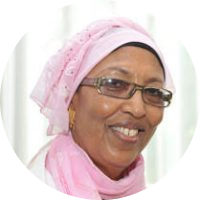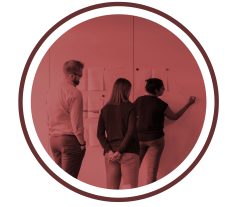The LERRN Multi-Stakeholder Research Planning Guides
About the Planning Guides
After frequently talking to community service providers about the challenges they face with both academics and students on community-based research projects, School of Social Work Faculty Nimo Bokore decided to open up a broader conversation on these issues.

October 5, 2018, she organized a meeting to bring together stakeholders within the social service sector, including community organization leaders, academics (social work, anthropology, political science, sociology), and graduate students from both Carleton and the University of Ottawa to discuss existing issues faced during the community-based research process.
The discussions focused on two main themes, increasing sector literacy and identifying community research interests or needs. The following questions were used as discussions guides to address those themes:
- What is the program and planning cycles for academic research projects? What is the best time to contact community practitioners to plan community-based research projects?
- What is the basis of a good working relationship between sectors?
- What are the community center’s expectations, parameters, and capacities?
- What are the areas of research that practitioners would like to see?
- What are the research interests of academics, graduate students and what do they need to know about the community organization they want to collaborate with?
Dr. Bokore transcribed the main discussion notes and used them to create three easy-to-use guides for research project planning that are designed for: academics, students, and community organizations. These project-planning guides are meant to serve as concise guidelines for collaborating with community members and the organizations that are serving them, and to address issues that are being faced in the field today.
The multi-stakeholder planning guides are part of Dr. Bokore‘s involvement with . LERRN is a team of researchers and practitioners committed to promoting protection and solutions with and for refugees. The creation of this network aims to ensure that refugee research, policy and practice are shaped by a more inclusive, equitable and informed collective engagement of civil society.



